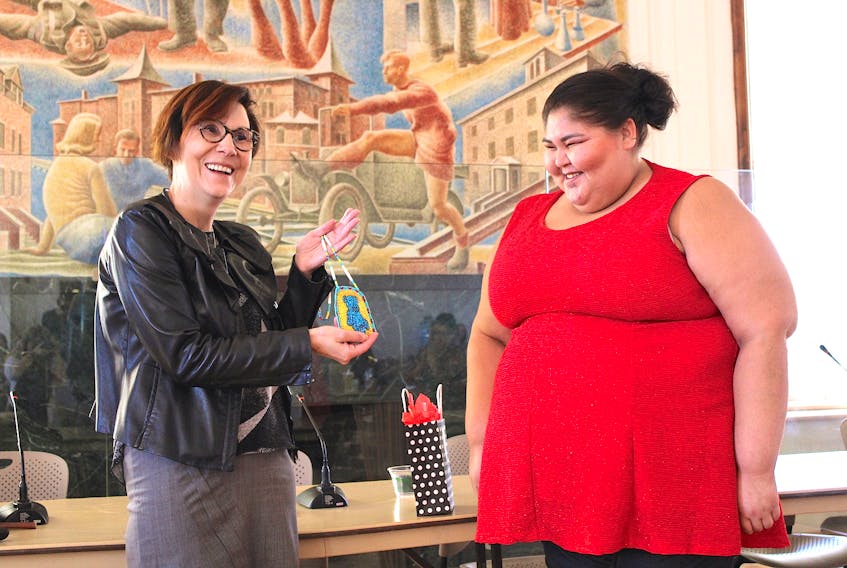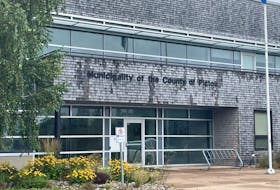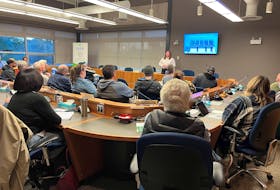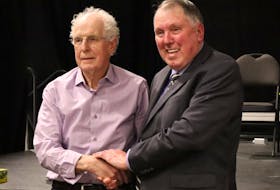SACKVILLE, N.B. — Cindy Blackstock wants 2019 to be the year racial discrimination finally ends against First Nations children.
Blackstock, a member of the Gitxan Nation and a prominent researcher and advocate for the rights of Indigenous children, urges voters to make the right choice on Oct. 21 and take a stand against the inequalities that First Nations children and families continue to endure.
“There is no greater moral issue on the election agenda than that,” said Blackstock as she delivered the keynote address at Mount Allison’s Indigenous Day of Learning and Language last Wednesday.
Blackstock said this federal election provides people with an opportunity to vote with their conscience, and to ensure that “this is the last year that First Nations children and their families get less because of their race and the rest of us just look away.”
As executive director of the First Nations Child and Family Caring Society, Blackstock brought a landmark discrimination case to the Canadian Human Rights Tribunal to challenge the federal government’s chronic underfunding of children’s services on First Nations reserves and for First Nations children in the Yukon.
The Tribunal ruled in January 2016 that Canada had racially discriminated against 163,000 First Nations children by providing inequitable child welfare services and failing to implement Jordan’s Principle, a child-first principle used in Canada to resolve jurisdictional disputes.
“This is the only time in the world that a Western country’s been put on trial for its contemporary racial discrimination against children,” said Blackstock.
It’s been more than three years since the ruling and Blackstock said the government has still yet to fully comply with the decision by the Tribunal, even filing a judicial review and a stay application in recent weeks.
“They said they would implement the decision and then they did nothing,” she said. “And we’re now up to 10 legal orders against the Canadian government to try and get them to comply.”
She said the government is well aware the underfunding of children’s services continues to not only result in unnecessary family separations but also in the deaths of children. But people continue to turn a blind eye to this discrimination.
“We all rose up in protest when Trump started separating families at the border in Mexico, and rightfully so,” said Blackstock. “But there are more children separated in this country this last year unnecessarily in ways that the Canadians Human Rights Tribunal called ‘willful and reckless.’”
“Why is it that we can see so clearly human rights abuses south of our border and other parts of the world . . . but we seem to always let this one slip off the front pages of the newspaper and to the back of our minds?”
“There’s a whole litany of issues in our history where we have all collectively known better or we could have done better. But we’ve allowed our governments, regardless of political persuasion, to get away with it.”
Blackstock said it’s time to change this mindset.
“When you go to the polls, and you’re going to consider things that are important to you, I want you to vote to end this racial discrimination against kids once and for all.”
She encourages voters to go to their candidates and urge them to consider the immediate implementation of the Spirit Bear Plan, a plan that would end inequalities in public services for First Nations children youth and families.
“I want you to be that best hope. I really am hoping we can make a loud conversation with government.”
RELATED:
- New artwork unveiled at Mount Allison in honour of missing and murdered Indigenous women and girls
- Family, survivors and experts from the missing and murdered Indigenous women inquiry
- Calls for justice ‘incumbent on every Canadian’ following missing and murdered Indigenous women report









